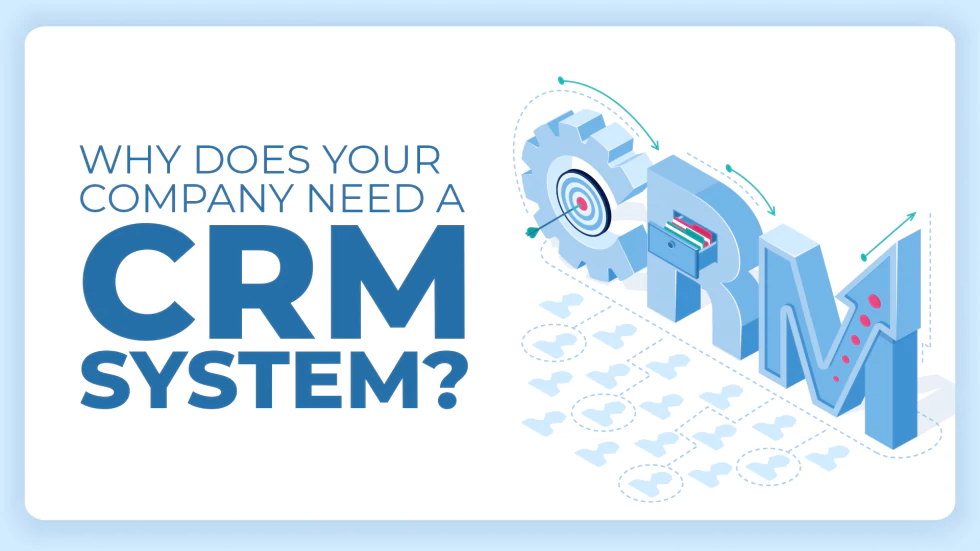A Customer Relationship Management (CRM) system does more than recording sales, generating leads, and segmenting your customer base. A good look at your CRM data can help identify the pain points of your customers and their unique needs.
It’s time for you to deploy a CRM system if you want to take your business to next level and transform it into an integrated business. If you are new in business and struggling to keep up with challenges, CRM can help you overcome your problems. Similarly, growing businesses also need a CRM that can swiftly sort and prioritize orders and queries.
The best CRM software fulfills complex needs without being complicated. It’s better to look for a CRM system that is easy to upgrade and allows flexibility to cater to multi-facets of issues. Besides, make sure it offers actionable insights to make informed decisions for better results.
Key Features of CRM Software
Smartly designed CRM software must include the following features to guarantee efficient performance.
- Should be able to keep all the information about leads, queries, and customers in a single place
- Give a quick picture of team activity while allowing different systems to navigate together
- Allow real-time sharing of files and ideas
- Allow seamless integration with other modules and activities like email marketing, invoicing, and sales
- Reduce time and cost by minimizing the cycle time for orders and queries.
- Should require low and simple maintenance
- Should be easy to customize and upgrade as and when required
- Consolidate data and extract information as needed
- Keeps track of sales orders and targets
- Extract optimized and actionable data to make informed decisions
What is the Best Time to Invest in CRM?
When and why should a business invest in a CRM system is an important decision to make for any business. A good CRM system, without an iota of doubt, is the lifeblood of any growing business. Besides, it gives business insights to make timely decisions by giving a quick report on statistics through analytical dashboards.
Similarly, it won’t be an exaggeration to say that lots of loads from data mining and digging can be taken off by CRM software alone with real-time reports and flow charts. Considering the myriad benefits that deployment of a CRM system offers, it is yet important to study your business needs and match them to the benefits most CRM software applications offer.
Benefits of CRM Software
The following are some important benefits to consider
1. Connects Customers and Sales Team
A CRM system connects customers and the sales team. This helps in keeping the track of all interactions and keeps the team updated on sales orders and invoices. Hence, teams can manage their orders, view their progress against set objectives, and assess their performance against their targets.
2. Keeps Teams Motivated
CRM enables teams to respond to customers’ queries instantly and fosters a strong relationship between customers and the customer relationship team. Tightly integrated CRM software can schedule meetings anytime from anywhere allowing other areas of the business about the progress of sales and customer satisfaction levels.
Moreover, auto-generated reports assist in forecasting demand and determining resource capacity to fill those demands. As a result, teams can plan proactively and avoid last-moment hassles.
3. Rids your Business of Unnecessary Paper Trail
Keeping the track of sales and orders on a paper-based system is rigid, time-consuming, and unreliable. With email and telephone integration with a CRM system, customers can be given exclusive attention without breaking the flow of communication.
4. Aids Decision making by Forecasting
A customizable intuitive CRM system can get accurate forecasts and allow further addition of functions as per growing business needs and customer base. Besides, it helps you in updating information on your prospects in no time, keeping your data as accurate as possible.
Moreover, you can use the auto-generated reports to identify dead-end leads thus saving lots of time and minimizing headaches in the end. A good CRM system also optimizes your data and guides your strategy.
5. CRM for Startups
The most important goal for startups is to grow and develop apart from sustaining their business. Startups usually have to deal with loads and loads of data as they segment their market and identify their niche. Besides, they have to throw their marketing efforts towards large groups of customers to achieve their desired clientele.
Hence, a properly designed and utilized CRM is as important for a startup as Oxygen for life. It helps companies find new customers and engage with their target audiences. Moreover, a CRM system also helps in finalizing deals, records customer history, and disseminates information to all concerned members of the team.
Similarly, a well-integrated CRM system enables startups to deliver excellent customer experience by uniting departments. Hence, it makes every team member a customer representative. As collaboration is fuel for the growth of startups, CRM provides an efficient means of data sharing and usage to improve collaborations with customers and investors alike.
Additionally, integrating your CRM with accounting platforms allows you to optimize the usage of funds while maintaining transparency with stakeholders. Most importantly, a socially integrated CRM helps to identify and explore potential markets and growth areas.
Wrapping Up
With so many CRM systems on the market, it can make it extremely difficult for businesses to choose the right CRM. Choose Khired Networks now to improve your customers’ experience. We are a leading provider of end-to-end SaaS applications and software solutions.
Our experts design customized performance-driven tools to help businesses improve their customer services and lead generation. Click on the link www.khired.com to contact us and learn more about CRM integration.

